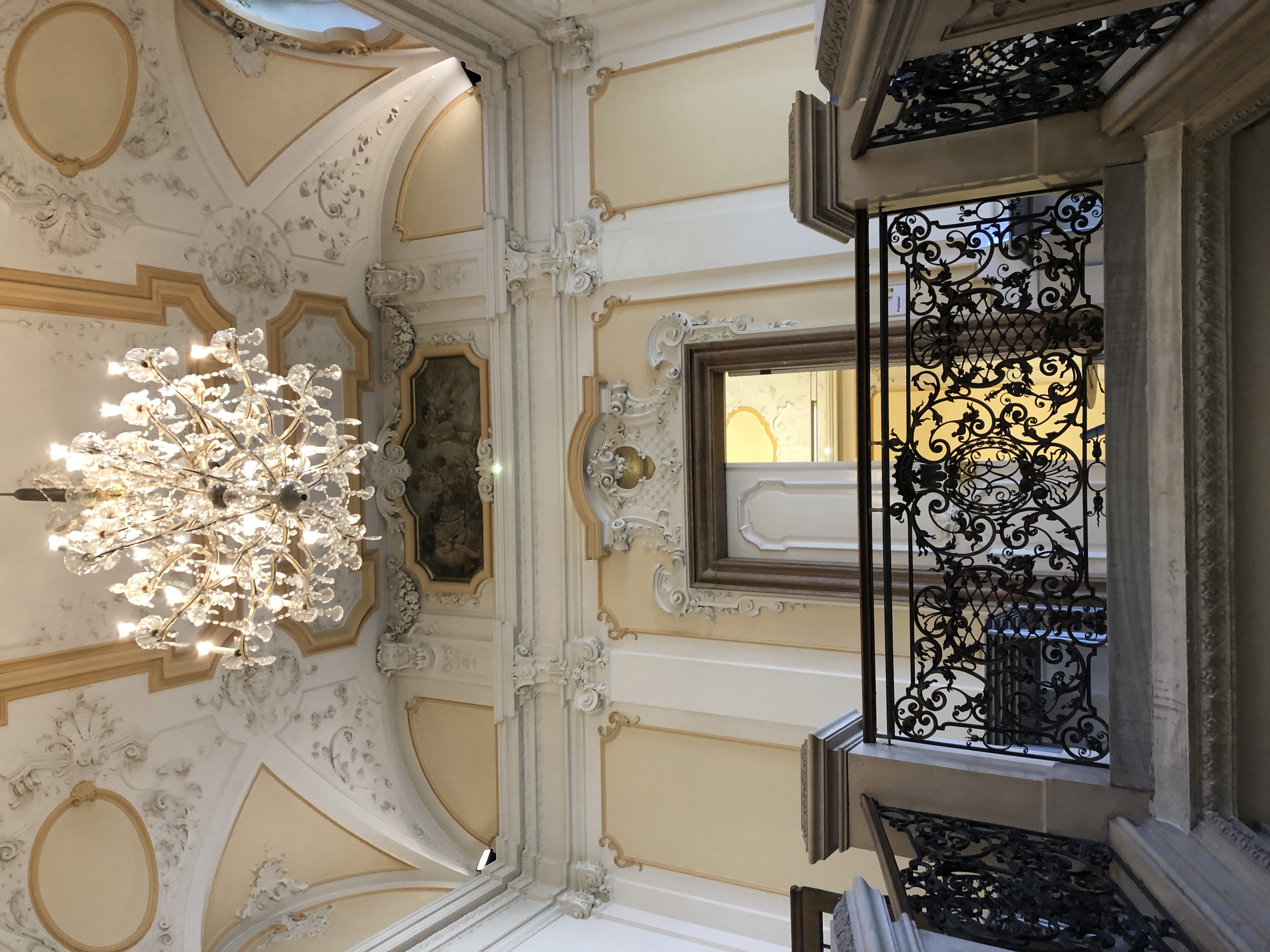The benefits of committee work
Committee* work provides relevant experience for tenure jobs, it helps build a network within the university and enables access to official as well as informal information. On July 6, in the representative rooms of Palais Kottulinsky, a group of postdoctoral researchers explored in a round table what „shaping academia in committees and commissions“ can look like.
The expert for this round table was Renate Dworczak, professor of organic chemistry at the University of Graz. She is the special representative of the rectorate for gender equality and diversity. She has previously served as Vice-Rector for Staff, Staff Development and Equality for three four-year terms and prior to that was chair of the AKGL (Arbeitskreis für Gleichbehandlungsfragen/ Working Group for Equal Opportunities).
“If you want to change the system, you have to be in it.”
Professor Dworczak decribed her path to becoming Vice-Rector, and also described some bodies that shape our university: For example, as a member of a Curriculum Committee you are very influential, because you co-decide what the curricula will be like in the future, i.e. what students learn. The Employee’s Council for the Academic Staff and the Working Group for Equal Opportunities are legally installed and can be strong partners for the university’s management. One question discussed at the round table was how to become involved – one approach is to contact the chairs for committees and let your interest be known (keeping in mind when terms for committees are due to end, when committees are likely to be formed, etc).
Becoming well connected
Central to shaping academia are networks, so the group discussed how to create your own networks. Starting at your department, you can build networks which transcend working groups, which connect people in your situation; you can also become involved with postdoctoral researchers throughout the university; or network on the faculty level; join the networks of successful people by asking to be mentored. Another question was how to get on the path to be really influential: After proving and showing that you are an excellent scholar (publications, habilitation, track record of third-party funding), you take up roles (such as chair of a committee) where you are visible and likely to be noticed, ideally as a person who is striving to be part of the solution.
Try it out!
Renate Dworczak also talked about processes that have been happening at the university for a number of years which strive towards more transparency and a stronger representation of women in positions of leadership and decision making. Participants were encouraged to actively contribute to the development of our alma mater and have influence on what this development will be like.
The PostDoc Office will offer this discussion format regulary, as part of its goal to promote optimal collaboration and support leadership development among postdoctoral researchers.
(Report by Johanna Stadlbauer, July 6, 2022)
> Handout for the workshop: Glossary of bodies and documents related to university governance
> Overview: See the Organisationsplan: 4. Sondernummer (6.b), lists of committees and working groups at the Faculties:
- Portal der Naturwissenschaften
- Gremien - Katholische Theologie
- Gremien an der Fakultät - Rechtswissenschaften
- Fakultätsgremium - Geisteswissenschaftliche Fakultät
- Sozial- und Wirtschaftswissenschaftliche Fakultät - Sozial- & Wirtschaftswissenschaften
- Fakultätsgremium - Umwelt-, Regional- und Bildungswissenschaften
